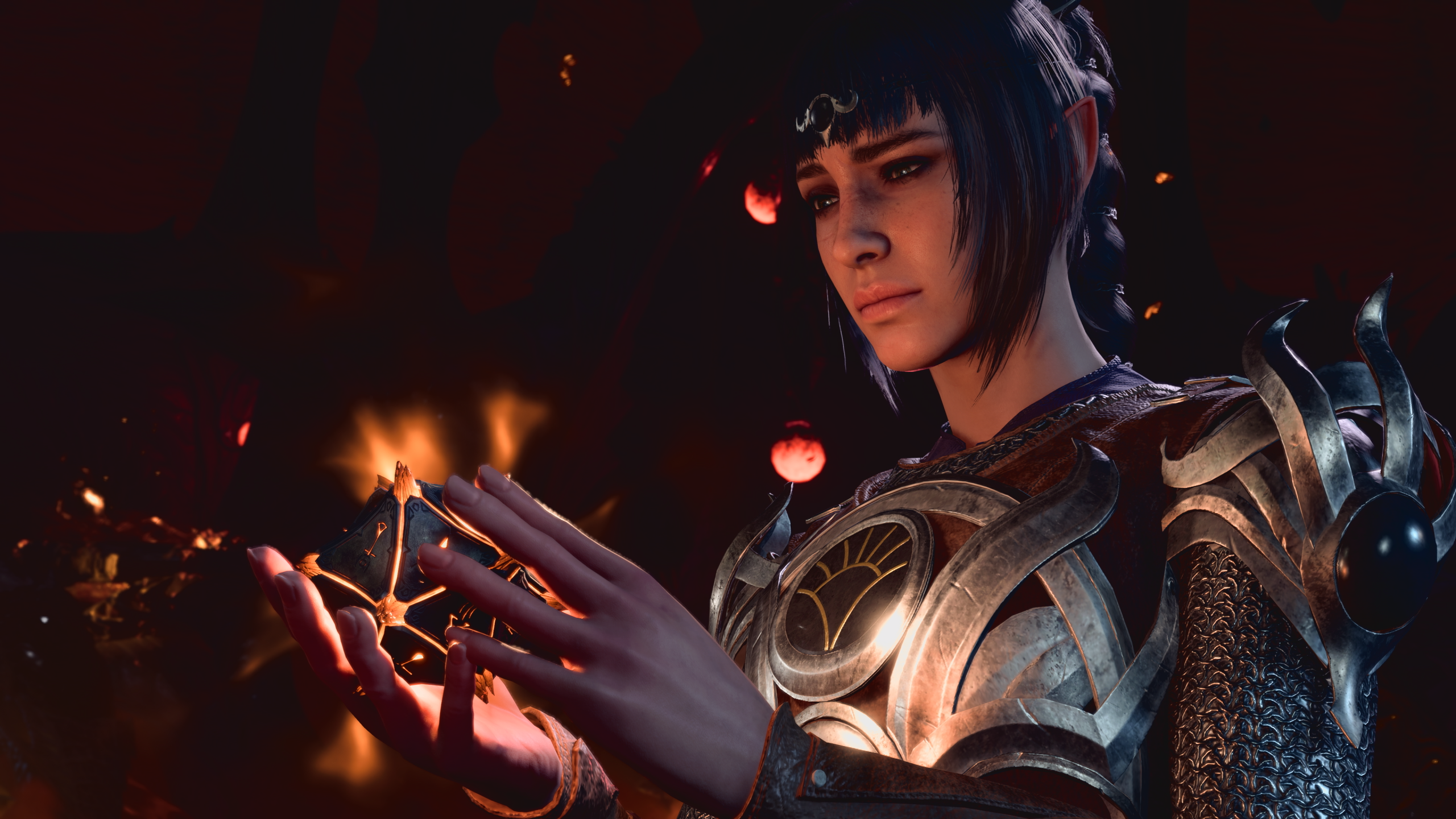Baldur’s Gate 3’s initial story hook is simple: you have a mindflayer parasite in your brain, and you probably don’t want that (unless…?). Its gameplay hook is much more ephemeral though: the promise of not just adapting the Dungeons & Dragons system, as plenty of games have done before, but taking that wide improvisational space of playing at the table into the more rigidly coded world of a video game.
Baldur’s Gate 3 reviewDeveloper: LarianPublisher: LarianPlatform: Played on PCAvailability: Out now on PC (Steam, GOG), 6th September on PS5, TBC on Xbox Series X/S.
It’s an ambitious idea, particularly in the CRPG space, where there’s a general trend that very close adaptations of tabletop rulesets tend to feel hostile to their players – we rely on human moderation to fudge dice rolls, adapt encounters, and respond to their players, and a straight adaptation running on cold hard random numbers alone can feel like the person (computer) running the game is being cruel. But, at least for the first 30 hours, as it responds to the choices you’ve made through character creation, dialogue, and even tiny interactions with its world, developer Larian seems to pull off the unlikely, and make an RPG that feels truly collaborative.
This breadth of possibility in Baldur’s Gate 3 is really an illusion – but one that’s closer to excellent stagecraft than a distracting wizard spell, and it’s meticulously done. The magician Larian pulls a rabbit out of its hat, and instead of looking up the developer’s sleeve you think about casting Speak with Animals, or doing an animal handling check to try and pet it, or maybe seeing if it has unique responses to a wildshaped druid.
The trick, of course, is that when you’re surrounded by animals in a grove full of druids you feel invited to drink that elixir, or cast that spell, and spend that resource – and in turn, the animals in that grove full of druids all have fascinating things to say. You can still put the same effort into talking to animals in a dark dungeon with scurrying rats – but the rats have much less to say, and it isn’t as inviting as spending your resources on the unique challenges of the dungeon ahead. It isn’t limitless, but an exchange – much like how a good Dungeon Master at the table will craft encounters that play to your strengths and weaknesses, Baldur’s Gate 3 knows when you’re likely to have certain abilities, how to let you show them off, and when to take them away.
